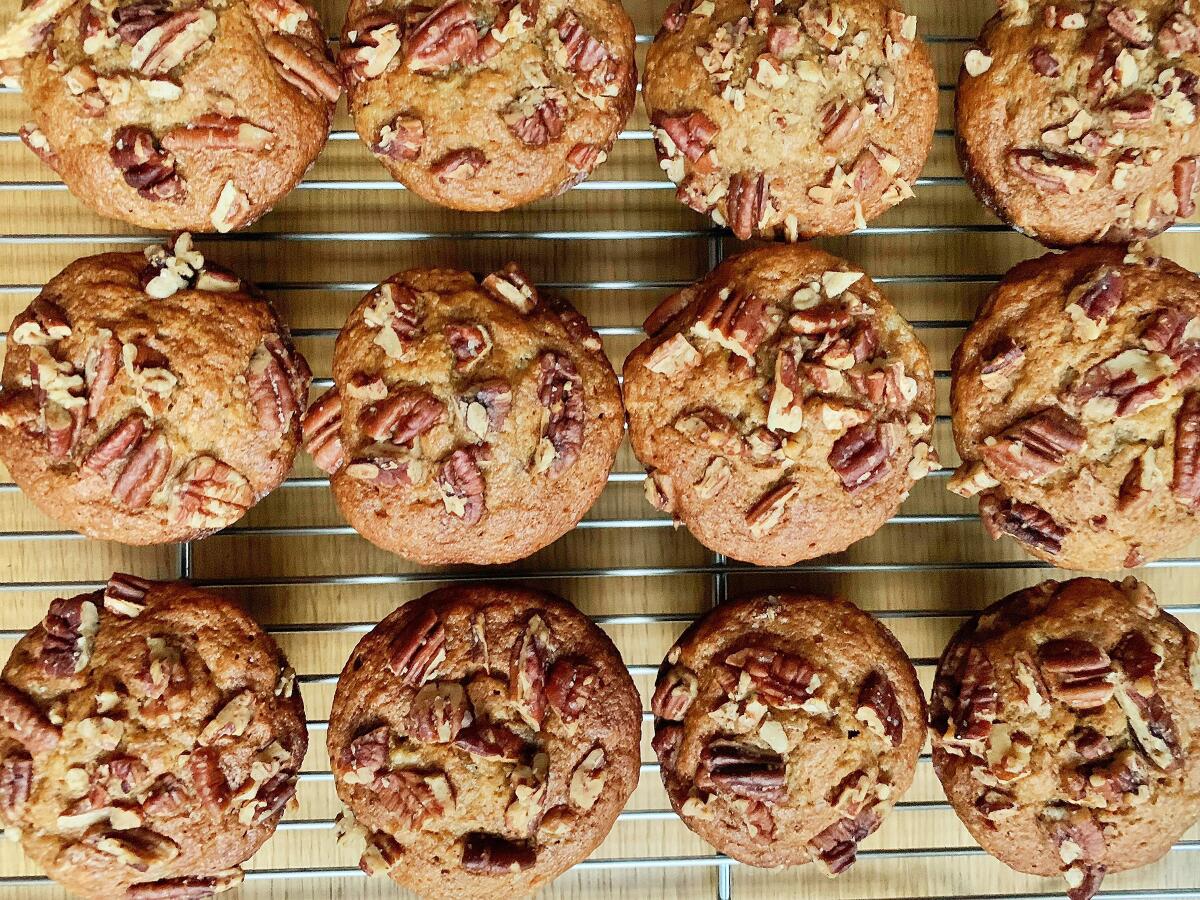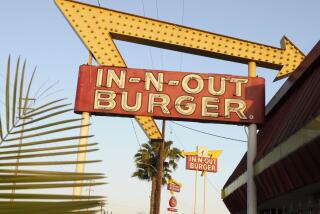Op-Ed: Hand a burned-out healthcare worker a baked good, and ‘muffin rage’ may follow

- Share via
On a dreary morning more than 20 years ago, I was a resident in internal medicine putting in 80-hour workweeks for what amounted to about $5 per hour when I passed through the revolving door of our fancy new hospital atrium and was confronted by a large banner announcing: “RESIDENT APPRECIATION DAY.” Underneath it was a folding cardboard display with stock photos of suspiciously happy, smiling young people in scrubs — and a large plate of muffins.
As I passed the table, I reached out to take a muffin but stopped myself as my hand touched the wrapper. I have a vivid, flashbulb memory of being overcome at just that moment with an uncharacteristic, fiery rage. If I’d had the option of picking up a brick instead of a muffin, I might have hurled that brick through the glittering wall of plate glass.
I was angry because I didn’t need a muffin. I needed years’ worth of good sleep. I needed time to see my family, a mere thousand miles away. I needed a vacation. I was so burned out and depressed I should have been seeing a psychiatrist. I was deep, deep inside a black hole, and instead of a rope and a flashlight, somebody had offered me a muffin.
Op-Ed: I made the hard choice to avoid COVID’s front line. Here’s why my fellow doctors may judge me
You might think that a doctor with a health history like mine would avoid the front line of a novel viral pandemic. It isn’t that simple.
I often speak to groups of healthcare workers about burnout, and whenever I tell this story I only half-jokingly describe the phenomenon as “muffin rage.” Muffin rage is what we feel when there is a vast chasm between our actual needs and what another person or an institution thinks we need.
Muffin rage usually goes down something like this: We are doing a difficult task, in untenable conditions and without acknowledgment, which causes us to carry around tightly controlled anger, resentment and despair. When another party makes an offering that is so inadequate relative to our actual needs, it jolts us into a state of seemingly disproportionate outrage.
But that’s the irony: Our rage is proportionate to the degree of their oblivion. Muffin rage is what the French peasants might have felt if Marie Antoinette had leaned out the window and cheerfully shouted at them to just eat cake. (Technically that would have been “cake rage.”)
A “hierarchy of needs,” developed by the psychologist Abraham Maslow, can help us understand where this rage comes from. In his pyramid, our most fundamental needs have to be met — food, water, physical safety — before we can move on to pursue needs that are more social, intellectual and emotional. I couldn’t think about the meaning of my contributions to my workplace because my basic needs were being used as fuel to keep that workplace running. No thank-you muffin could make that up to me or anybody else.
In the last year and a half, most of us have experienced some threat to the needs in Maslow’s pyramid. People of color, healthcare workers, citizens with disabilities, essential service workers, educators and much of the rest of the population have lived through some variation on deep, deep suffering.
For some, the pyramid’s base — our fundamental physiologic needs — has been torched. For others, the threats have been higher on the pyramid, and we’ve suffered a series of repeated kicks. The foundation of our lives has broken open or at least cracked, and somebody somewhere has offered us a “muffin” to make us feel better.
As a healthcare worker, I regularly see my peers on the pandemic front line explode like fireworks when management makes superficial offerings such as lunch-hour “resilience training” or providing a website link to a video on meditation as a way to compensate for overwork and related stress.
The irony is that some of these approaches might actually ease our suffering, but they don’t replace our basic needs for sleep, for reasonable working conditions, for physical and psychological safety. The offering is palliative when what we are seeking is a cure.
Growing up in a family with problems, my lifeline became Alan Alda’s Hawkeye on “MASH.” As a doctor fighting COVID-19, I channel his humor and rage.
My years of mindfulness practice have taught me how to sit with rage instead of run with it, to allow it to settle so I can see and name the unmet need that is driving it. I’ve been helped by these skills because they allow me to get closer to the flame, to see and name the root causes of my distress. But treating symptoms is not the same as treating root causes. Acceptance is a useful stance, but we can’t let it lull us into submission.
The healthcare workers I speak to often ask, “What can we do about our grief and rage?” I don’t want them to accept that rage as unavoidable. I want them to be part of a movement that demands work environments that honor our most basic needs so we can do our jobs without literally killing ourselves. Our rage and despair arise in part from being ground into bone meal because reasonable workplace standards are missing in much of medicine just as they are in Amazon warehouses and so many other workplaces.
So, if your employee bursts into angry tears when you offer a muffin, ask yourself what private hurt you’ve tapped into. We’d all fare better if we went a little deeper than baked goods and simply asked, what do you really need? And then listened.
Jillian Horton is a writer and physician. She is the author of “We Are All Perfectly Fine: A Memoir of Love, Medicine and Healing.” @jillianhortonMD
More to Read
A cure for the common opinion
Get thought-provoking perspectives with our weekly newsletter.
You may occasionally receive promotional content from the Los Angeles Times.










